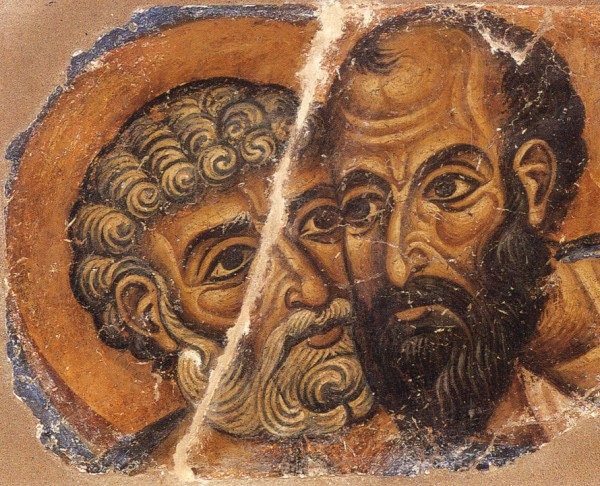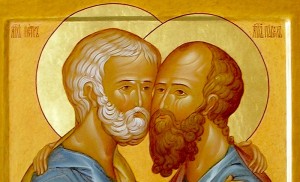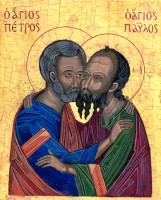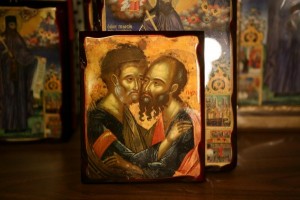Tonight, around the world, we begin the celebration of two great saints: Peter and Paul. But, it’s strange. Two great giants of our faith, yet they share a feast day. Why not a day for each one?
Well, because, in life, they didn’t get along.
Of Peter, Paul once wrote,
But when Cephas [Peter] came to Antioch I opposed him to his face, because he stood condemned. For before certain men came from James, he ate with the Gentiles; but when they came he drew back and separated himself, fearing the circumcision party. And with him the rest of the Jews acted insincerely, so that even Barnabas was carried away by their insincerity. But when I saw that they were not straightforward about the truth of the gospel, I said to Cephas before them all, “If you, though a Jew, live like a Gentile and not like a Jew, how can you compel the Gentiles to live like Jews?” (Galatians 2:11-14 RSV)
Paul goes on to write about how the gospel brings people together. It cuts across barriers and makes families out of strangers.
Peter and Paul had agreed, the gospel is for all people – Jew and Gentle, slave and free, male and female. It allows everyone to sit down together, as one family, to eat at the Lord’s table.
However, Peter was afraid of what his Jewish brothers and sisters would think of him, so he decided to only eat with other Jews, and Paul calls him on it.
Peter had betrayed the gospel.
We know that in the end, they were reconciled and that both of them died martyrs in Rome.
However, they share a feast day, which continually reminds us that the gospel is about union, reconciliation, and overcoming the human barriers that divide us.
This message – the good news of Jesus Christ – is very poignant today.
Our world is torn about by class, gender, politics, religion, race, denomination, and many other things.
But the Church reminds us: be imitators of Peter and Paul. Come together, be reconciled for this is the gospel.




















